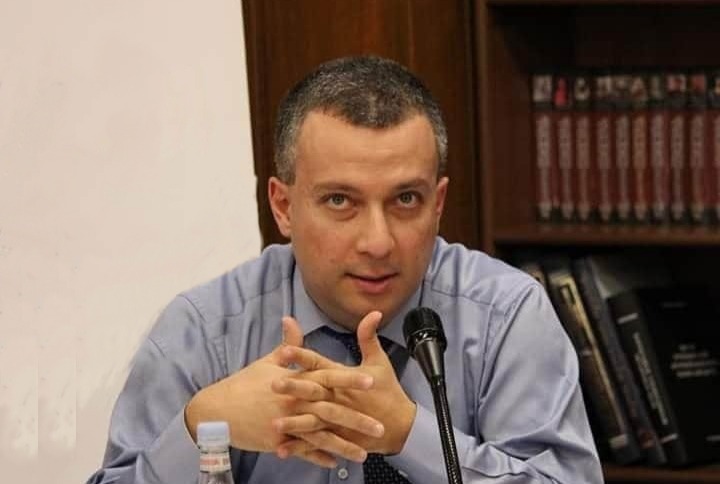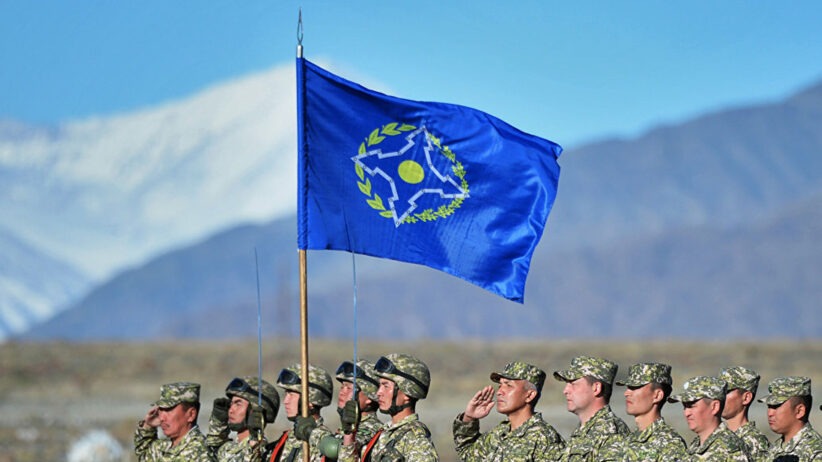Benyamin Poghosyan, Chairman, Center for political and economic strategic studies
Azerbaijan launched a new, large-scale aggression against Armenia on September 13, and the absence of tangible actions by the CSTO to stop Azerbaijan’s attacks have reinvigorated discussions in Armenia about the country’s potential withdrawal from the CSTO. This recent wave of public discontent in Armenia about the CSTO coincided with a visit to Armenia by U.S. House Speaker Nancy Pelosi, which added a geopolitical component to the discussions, given the complete rupture of relations between the United States and Russia.

On the very day of Azerbaijan’s aggression, Armenia officially appealed to the CSTO, based on article 4 of the treaty, asking for support, including by military means. On September 13, a special CSTO Collective Security Council session took place by video conference, chaired by Armenian Prime Minister Nikol Pashinyan. The council decided to send a mission to Armenia. On September 15, the operative group of the CSTO mission to Armenia, led by the head of its joint staff, Anatoly Sidorov, arrived in Armenia on a fact-finding mission. On September 20, a mission led by CSTO Secretary General Stanislav Zas arrived in Armenia. The mission was tasked with assessing the situation on the Armenian-Azerbaijani border, preparing a detailed report for the heads of the CSTO member states, developing proposals to de-escalate border tensions, and holding several meetings with the Armenian leadership.
The absence of direct military support from the CSTO in the context of Azerbaijan’s new aggression has triggered discussions in various parts of Armenian society about Armenia’s possible withdrawal from the CSTO, or at least a freeze in the country’s membership in the organization. Several rallies were organized in Yerevan by pro-Western political parties with such slogans, coinciding with Pelosi’s historic visit.
The growing anti-CSTO sentiments in Armenia are part of the broader trend of disappointment in Russia due to its lack of action during the 2020 Nagorno-Karabakh war, Azerbaijani incursions into Armenian territory in May and November 2021, and Azerbaijani advancements and military actions in Nagorno-Karabakh in March and August 2022.
Armenia’s membership in the CSTO is directly connected with the state of Armenia-Russia relations, and any decision by the CSTO will immediately affect those relations. Armenia has always viewed its CSTO membership as an additional track to its strategic alliance with Russia. Any decision on Armenia by the CSTO in the context of Armenia-Azerbaijan relations is de facto made by Russia. Other members of the CSTO have equal, or even better, relations with Azerbaijan than they have with Armenia: Kazakhstan and Kyrgyzstan are members of the Organization of Turkic States, and Belarus has solid economic and military cooperation with Azerbaijan.
Russia, in turn, seeks to maintain a balance between Armenia and Azerbaijan. As a signatory of the November 10, 2020, January 11 and November 26, 2021 trilateral statements, Russia assumed the primary mediating role in the settlement of the Armenia-Azerbaijan conflict, sidelining the United States and France. Russia’s strategic goal is to increase its influence in the entire South Caucasus region, which requires sustained partnership with Azerbaijan. In this context, any direct military action against Azerbaijan on behalf of Russia or the CSTO in defense of Armenia contradicts Russia’s strategy.
The ongoing war in Ukraine created additional complications for Russian and CSTO military involvement to deter and push back Azerbaijan. It may create a second front for Russia in the post-Soviet space and trigger an acute crisis in Russia-Turkey relations. Both options are unacceptable for Russia.
At the same time, while the Kremlin may well understand the reasons behind Armenia’s disappointment in the CSTO, Russia is likely to perceive any decision by Armenia to withdraw or freeze its membership in the CSTO as a hostile action. Amid unprecedented Western pressure on Russia, such a decision by Armenia on the CSTO would be interpreted as another defeat for Russia and part of the collapse of Russian-led alliances in the post-Soviet space.
It also should be noted that all suggestions that withdrawing from the CSTO would open the way for quick supplies of modern armaments from the United States and other Western countries to Armenia lack any substantive proof and are primarily emotional statements.
Thus, in the current situation, the CSTO’s decision to dispatch a mission to Armenia is the maximum that the organization and Russia, in particular, could afford. A decision to withdraw or freeze Armenia’s membership in the CSTO would negatively impact Armenia-Russia relations. It would further deteriorate Armenia’s external security environment without immediate compensation from the West.
















